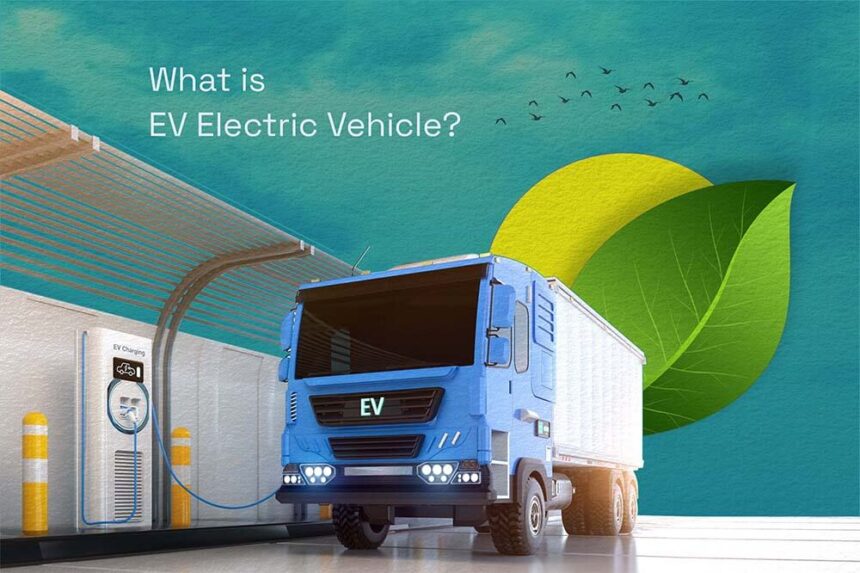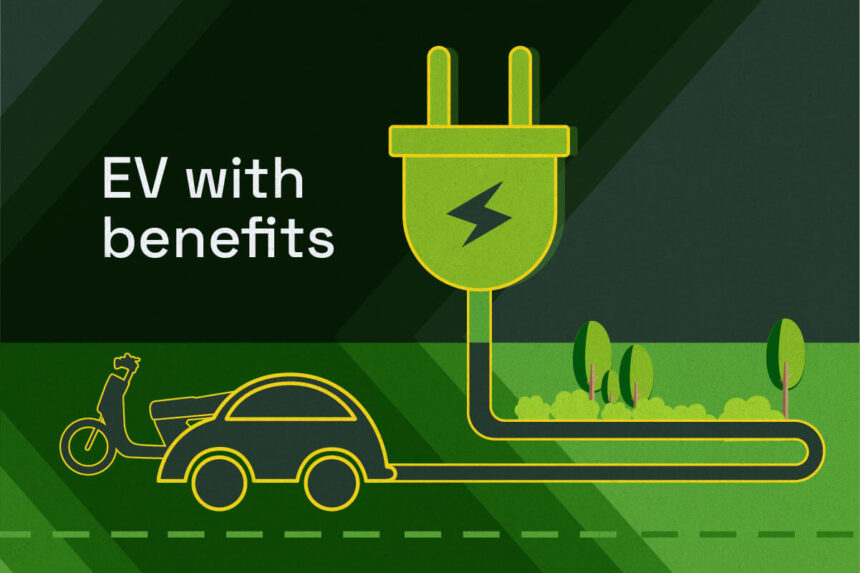The urgent need to combat climate change and reduce greenhouse gas emissions is driving a significant transformation in the automotive industry. Leading this revolution are electric vehicles (EVs) which have the potential to electrify our roads and transform our transportation paradigm. We will discuss the reasons why electric vehicles (EVs) are the way of the future in this blog as well as the technological developments that make them feasible and their potential to revolutionize daily life.
Reasons EVs Offer for the Future of Driving.
1. Environmental Benefits:. Because they have the potential to drastically cut carbon emissions electric vehicles are one of the strongest arguments for the switch. EVs dont contribute to air pollution because they dont emit tailpipe emissions like conventional internal combustion engine (ICE) cars do. Because urban air quality is a major concern this is especially important. We can lessen our reliance on fossil fuels and our carbon footprint by making the switch to EVs.
2. Savings on costs:. Even though EVs can cost more to buy initially than ICE cars there are significant long-term savings. Because an electric vehicle has fewer moving parts maintenance costs are lowered. Furthermore the cost of electricity is typically lower than that of gasoline which results in substantial fuel cost savings over the course of the vehicles lifetime. To promote the adoption of EVs governments and local authorities are also providing incentives like tax breaks grants and lower registration costs.
3. Technological Progress:. Many of the main issues surrounding electric vehicles (EVs) including range anxiety and charging time have been resolved by recent developments in battery technology. With some models reaching 400 kilometers (roughly 250 miles) on a single charge modern EVs can travel farther. There are more and more fast-charging stations available enabling drivers to conveniently and swiftly recharge their cars. Because of these advancements EVs are now a sensible option for daily use.
The Infrastructure Transition to EVs.
A strong and extensive infrastructure for charging EVs is necessary for them to become the primary form of transportation for the general public. Thankfully a lot of progress is being made in this direction:.
1. Public Places for Charging:. The creation of public charging networks is receiving significant funding from both public and private sectors. Parking lots malls highways and even residential areas now have charging stations available. By making it easier for EV drivers to locate charging stations this expanding network helps to allay range anxiety.
2. How to Charge Things at Home:. The convenience of charging EVs at home is preferred by many owners. Car owners can plug in their vehicles overnight and begin the day with a fully charged battery by installing home charging stations in their driveways or garages. Moreover users of smart charging systems can benefit from cheaper electricity costs during off-peak hours.
3. Charges at Work:. Companies are starting to provide EV charging stations in their offices. In addition to assisting staff members who drive electric vehicles this also persuades others to think about switching. An employees decision to buy an EV may be significantly influenced by workplace charging.
Electric Vehicles Effect on the Automobile Sector.
The automotive industry is undergoing a fundamental transformation as a result of the move to electric vehicles which involves more than just swapping out engines.
1. New Entities in the Market:. New businesses are now able to enter the automotive industry thanks to the rise of EVs. While established automakers like Ford General Motors and Volkswagen are making significant investments in their electric vehicle (EV) lineup companies like Tesla have become household names. The development of new technologies is accelerating due to this competition which is fueling innovation.
2. Career Development and Employment Creation:. Manufacturing battery production and infrastructure development are all experiencing job growth as a result of the electric vehicle (EV) market. But it also calls for a workforce that is skilled in new areas. To give workers the knowledge they need to support the EV revolution training programs and educational initiatives are crucial.
3. Ecological Supply Chains: In order to produce EVs resources like nickel cobalt and lithium must be found for the batteries. Its imperative to make sure that these materials are sourced responsibly and ethically. To address these issues the automobile industry is attempting to establish more accountable and transparent supply chains.
Conclusion
Electric cars are the way of the future they are not simply a fad. Electric vehicles (EVs) have the potential to revolutionize both our lives and our roads through their savings cost-effectiveness and technological advancements. The adoption of electric mobility is becoming easier and more accessible thanks to the construction of charging infrastructure and the backing of organizations and governments. Adopting EVs is a critical step in our transition to a more sustainable future. The journey has just begun and there is an exciting road ahead. The future is bright for electric vehicles regardless of whether youre thinking about purchasing an EV for the first time or have been an advocate for electric mobility for a long time. Come along and take part in the revolution that will lead to a more environmentally friendly and clean world.






